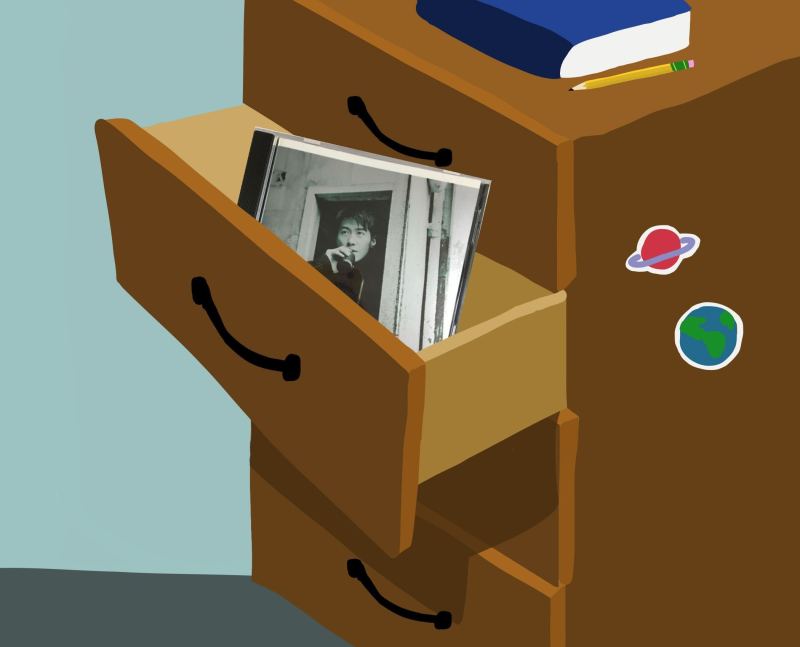Road trips were a staple of my childhood, but it is hard to say they are entirely fond memories. As someone who easily got carsick, I spent most of the long drives with my head against the window or lolling awkwardly to the side. If I was lucky, the steady thrum of the car cutting through the rural California expanse soothed me to sleep.
More often, however, I would have to sleep through the CD soundtracks of whatever was stowed in the glovebox of our beaten Mazda. Many of them were cheesy tunes from the children’s ministry summer programming at our church, which stressed the importance of Jesus’s love with peppy, albeit repetitive, fervor. Sometimes they came with their own dances. Occasionally they’d even be catchy.
There was one non-religious CD that we also played, one that became the emblematic Road Trip CD in my mind. It was an album in Mandarin by my mom’s favorite music artist, Leon Lai, who I understood was a major Cantopop legend in his day.
I had first heard of Leon Lai when we uncovered a poster of him in our garage. He was my mom’s idol, but my dad hastened to clarify that it wasn’t an idol in the way I had learned about it at church, which espoused biblical stories about the sins of idolizing golden calves and other false gods. No, this was different, a form of music fanaticism that somehow recurred across generations. I didn’t understand it back then, and now I do — but that’s a different story.
We seemingly only played the unidentified Leon Lai CD during our hour-long road trips. I didn’t know what it was called until I was in high school and successfully uncovered it by scrolling through Leon Lai’s albums on Spotify until I found the one that resembled the CD cover art.
嚮往, or Longing, a 1998 Mandarin release that came during the latter portion of an illustrious Cantopop career, did not seem to be one of Leon Lai’s most notable works. My mom didn’t seem to remember why she had it either.
The fact it was in Mandarin, however, made my parents even more inclined to play it on repeat. To make up for me and my brother’s embarrassing unfamiliarity with the Chinese language, throughout our childhood they were intent on having us watch shows and listen to music in Chinese as a way for us to immerse ourselves and make up for the ground we lost. They were usually in Mandarin, because that was what our formal Chinese schooling taught us, even though Cantonese was the dialect our family actually spoke. This at least meant I could use what I learned in class to understand the lyrics in 嚮往, though I found the singing harder to parse than normal speech.
Due to the endless exposure to the songs on the road, the genuinely memorable mix of upbeat and ballad-like tunes, as well as how well it embodies my complicated connection to the Chinese language, this random album holds a special place in my heart.
Our current car no longer has a CD player, but my parents still put on a Cantopop mix when we made the drive up to Stanford at the start of my freshman year. I recognized none of the songs. A part of me missed 嚮往 and its familiar melodies. Even still, I found myself in the same state as in the road trips of my childhood. My head lolled on my shoulder as I flitted between the realms of sleeping and waking. All the while, there was music murmuring in my ear, in a language that was nostalgic yet altogether too distant.
